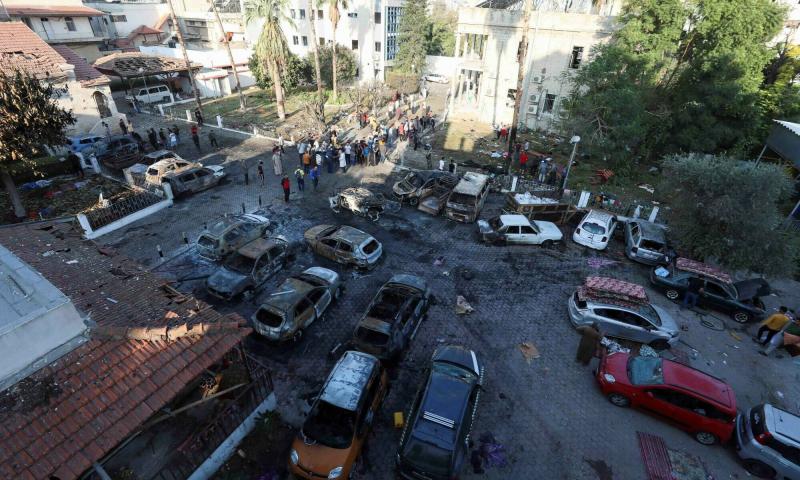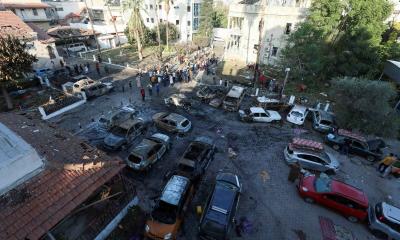With the escalation of the ongoing war between Israel and Hamas in Gaza, a strike on the Baptist Hospital in the sector on Tuesday resulted in the death of at least 500 people, leading to international and Arab condemnations denouncing the shocking act. In light of the disturbing images and scenes from the hospital site, international law experts told "Al-Hurra" that "the perpetration of acts against civilians by any party to the war, including attacks on residential areas and targeting hospitals and other vital infrastructure, amounts to a violation of international law."
Maha Al-Rifai, a professor of international law at the University of Loughborough in Britain, stated, "All wars, including this war (between Israel and Gaza), have laws." She added that "the deliberate targeting of civilians is prohibited under the fundamental principles of international humanitarian law, as stipulated in the 1949 Geneva Conventions, and later, in more detail, in the Additional Protocols of 1977." She continued: "Article 3 of the Third Geneva Convention prohibits attacks on life and physical integrity, especially killing in all its forms, mutilation, and cruel treatment and torture against persons who are not directly participating in hostilities."
Al-Rifai affirmed that Article 51 of the Additional Protocols states that "civilians shall not be the object of attack, and acts of violence or threats thereof aimed primarily at spreading terror among the civilian population are prohibited." According to the international law professor, there is also within the Additional Protocols what is called the "principle of distinction," meaning that the parties to the conflict must "distinguish between combatants and non-combatants (i.e., civilians) so as not to harm them."
Regarding the targeting of civilian areas in the presence of military groups, Al-Rifai stated that "international humanitarian law seeks to limit the scope and intensity of military operations in civilian areas, which include most parts of Gaza." She added: "Article 51 of the Additional Protocols prohibits indiscriminate attacks on areas with both military and civilian presence, as such an attack could harm those civilians."
Al-Rifai also pointed out that international law has established what is known as the "principle of proportionality," which means that "any attack that is expected to incidentally cause civilian casualties or damage to civilian property and facilities that would be excessive in relation to the anticipated concrete and direct military advantage must not be conducted." However, she clarified that "there are some nuances," as the same article in the Additional Protocols states that "the mere presence of civilians may not be used to shield military objectives from attacks or to protect military operations or support or impede them."




